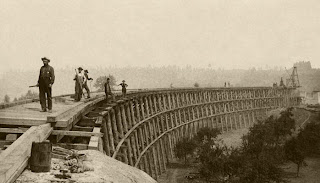 Since world currency is essentially based on oil prices....good news for the home team!! America is sitting on top of a super massive 200 billion barrel Oil Field that could potentially make America Energy Independent and until now has largely gone unnoticed. Thanks to new technology the Bakken Formation in North Dakota could boost America’s Oil reserves by an incredible 10 times, giving western economies the trump card against OPEC’s short squeeze on oil supply and making Iranian and Venezuelan threats of disrupted supply irrelevant.
Since world currency is essentially based on oil prices....good news for the home team!! America is sitting on top of a super massive 200 billion barrel Oil Field that could potentially make America Energy Independent and until now has largely gone unnoticed. Thanks to new technology the Bakken Formation in North Dakota could boost America’s Oil reserves by an incredible 10 times, giving western economies the trump card against OPEC’s short squeeze on oil supply and making Iranian and Venezuelan threats of disrupted supply irrelevant.In the next 30 days the USGS (U.S. Geological Survey) will release a new report giving an accurate resource assessment of the Bakken Oil Formation that covers North Dakota and portions of South Dakota and Montana. With new horizontal drilling technology it is believed that from 175 to 500 billion barrels of recoverable oil are held in this 200,000 square mile reserve that was initially discovered in 1951. The USGS did an initial study back in 1999 that estimated 400 billion recoverable barrels were present but with prices bottoming out at $10 a barrel back then the report was dismissed because of the higher cost of horizontal drilling techniques that would be needed, estimated at $20-$40 a barrel.
It was not until 2007, when EOG Resources of Texas started a frenzy when they drilled a single well in Parshal N.D. that is expected to yield 700,000 barrels of oil that real excitement and money started to flow in North Dakota. Marathon Oil is investing $1.5 billion and drilling 300 new wells in what is expected to be one of the greatest booms in Oil discovery since Oil was discovered in Saudi Arabia in 1938. The US imported about 14 million barrels of Oil per day in 2007, which means US consumers sent about $340 Billion Dollars over seas building palaces in Dubai and propping up unfriendly regimes around the World, if 200 billion barrels of oil at $90 a barrel are recovered in the high plains the added wealth to the US economy would be $18 Trillion Dollars which would go a long way in stabilizing the US trade deficit and could cut the cost of oil in half in the long run.
Let’s go America….do something for the “USA” this time instead of feeding other countries! Stop saying "no" all the time and finally say: "YES we can."
What about me and my needs? (Forget the battery cars)....





